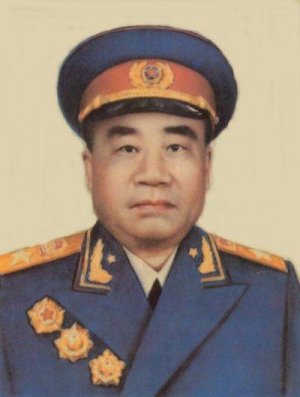
|
Long March Leaders
Marshal Zhu De Zhu De was born December 18, 1886, in Sichuan Province. Zhu De (pronounced Jew Duh) came from a poor family in which only eight of fifteen children survived. He was the "Grand Old Man" of the Red Army. He was Mao's closest collaborator. He was the Commander in Chief during the Long March. He had been a successful Warlord and an opium smoker, which he subsequently cured before joining the Communist Party. Zhu cured himself by taking a long trip down the Yangtze River in a British steamer where no drugs were available. After studying in Germany, he met Zhou Enlai and soon became a Communist leader. In 1923, he was the nationalist Chief of Public Security in Nanchang and of the KMT officers training corps. It was still a secret that he was a Communist Party member. He was always a strong supporter of Mao and the Zunyi Conference that decided the leadership of the Communist Party and the Red Army. The trio of Bo Gu, Otto Braun, and Zhou Enlai had been the leaders at the beginning of the Long March. But after disastrous defeats at the Xiang River crossing and the general direction of the Red Army, distrust was springing up against the strategy of the leaders. The Zunyi Conference and Mao's success set the course of China's affairs for the next 50 years. Zhu was in the First Top Command during the Long March. Zhang Guotao and Zhang's Fourth Route Army for held him virtual prisoner over a year. Zhang tried to take over the leadership of the Red Army and the Chinese Communist Party. Zhu then escaped to join the Red Army. Zhu was the Commander in Chief of the 8th Route Army during the Sino-Japanese war and later of the PLA (People's Liberation Army.) |
|
| Marshal Zhu De | ||
|
At the founding ceremony of the People's Republic of China on October 1st, 1949, as the Commander in Chief of the People's Liberation Army, he was on the reviewing stand next to Chairman Mao. After the establishment of the PRC (People's Republic of China), he served as President of China with no actual power. By 1949, Zhu's role had become more ceremonial than active. In 1967, during the Cultural Revolution, a poster named Zhu De a "Big Warlord" and a "Black General." Zhou Enlai helped to save him until he died on July 7, 1976. On to Marshal Peng Dehuai Return to Long March Choices |
||